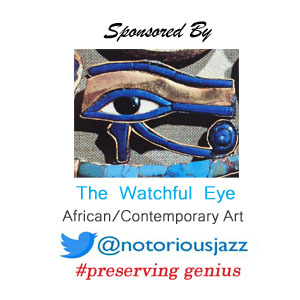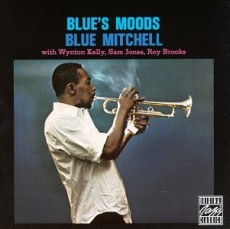
Daily Dose Of Jazz…
Blue Mitchell was born Richard Allen Mitchell on March 13, 1930 and was raised in Miami, Florida. He didn’t begin playing trumpet until high school, where he received his nickname “Blue”. In the years following he played in the rhythm and blues bands of Paul Williams, Earl Bostic and Chuck Willis but upon returning to Miami caught the ear of Cannonball Adderley, with whom he recorded in 1958 for Riverside.
He joined the Horace Silver Quintet playing alongside Junior Cook, Gene Taylor and Roy Brooks until 1964 and then formed his own band replacing Silver with Chick Corea an ailing Brooks with Al Foster. By 1969 Mitchell disbanded the group and joined Ray Charles, touring till ’71.
This stint was followed by Jazz Blues Fusion with John Mayall and throughout the seventies he recorded and worked as a session player, performed with Louis Bellson, Bill Holman, Lou Donaldson, Grant Green, Philly Joe Jones, Jackie McLean, Dexter Gordon, Hank Mobley and a host of other major players.
On May 21, 1979 the multi-faceted trumpeter Blue Mitchell, who delivered a light and swinging tone and known for his jazz, rhythm and blues, passed away from complications of cancer at age 49 in Los Angeles, California.
More Posts: trumpet
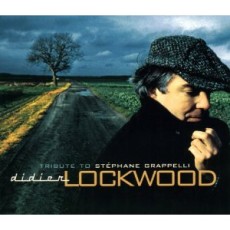
Daily Dose Of Jazz…
Didier Lockwood was born on February 11, 1956 in Calais, France and began studying classical violin and composition at the Calais Conservatory at six years old. But thanks to his brother Francis, Didier’s world was opened to other forms of music and he quit his studies in 1972. Entranced by the improvisation of Jean-Luc Ponty’s playing he took up the amplified violin. He credits being influenced by Polish violinist Zbigniew Siefert and fellow Frenchman Stephane Grappelli with whom he toured. By 1975 he joined progressive rock group Magma followed by fusion group Uzeb.
During the 70’s he played in Paris with Aldo Romano and Daniel Humair among others, led a fusion group called Surya and recorded with Tony Williams. The 80’s saw Didier performing at the Montreux Jazz Festival teamed with guitarist Allan Holdsworth, bassist/vocalist Jack Bruce, drummer Billy Cobham and keyboardist David Sancious, playing in the U.S. and recording with violin colleagues John Blake and Michal Urbaniak.
Lockwood’s career has been diverse ranging from fusion to swing to advanced hard bop but he first gained fame for exploring new musical landscapes and performing various sound imitations such as seagulls and trains. Although slated as the heir apparent to the line of great French violinists behind Grappelli and Ponty, by the nineties he maintained a very low profile. He established a string instrument improvisation school in 2001 called Centre des Musiques Didier Lockwood, has been touring with jazz guitarist Martin Taylor since 2006 and written several film scores.
More Posts: violin
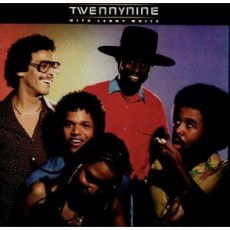
Daily Dose Of Jazz…
Lenny White was born Leonard White III on December 19, 1949 in New York City. Self-taught left-handed drummer, he played in local groups but basically started his career at the top of the ladder playing regularly with Jackie McLean in 1968, recording “Bitches Brew” with Miles Davis in 1969 and Freddie Hubbard’s Red Clay in 1970.
White was soon working with some of the who’s who of jazz including Geri Allen, Joe Henderson, Woody Shaw, Gato Barbieri, Gil Evans, Stanley Clarke, Jaco Pastorious and Stan Getz among others. He joined the short-lived group Azteca, and then as a member of Return To Forever from 1973-76, he gained a huge reputation as one of the top fusion drummers, but he remained versatile to play in many settings.
After the breakup of Return To Forever, Lenny White headed several fusion projects but none of the Nemperor and Elektra recordings found much traction in popularity, even amongst the funk crowd. In 1979 he formed the group “Twentynine” that achieved some notoriety. However, his work with the Echoes Of An Era and Griffith Park all-star groups have been received with acclaim and success.
Lenny has led fifteen albums as a leader and another two-dozen as a valuable sideman for a wide variety of projects. He continues to perform, record and tour.
More Posts: drums
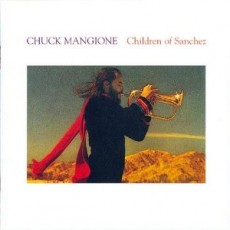
Daily Dose Of Jazz…
Chuck Mangione was born Charles Frank Mangione on November 29, 1940 in Rochester, New York. He attended the Eastman School of Music from 1958 to 1963, afterwards joining Art Blakey’s Jazz Messengers, for which he filled the trumpet seat.
In the late 1960s, Mangione was a member of the band The National Gallery, then served as director of the Eastman jazz ensemble from 1968 to 1972, and during this time returned to recording with the album Friends and Love, with the Rochester Philharmonic Orchestra.
Mangione’s quartet with saxophonist Gerry Niewood recorded “Bellavia” that won him a Grammy for Best Instrumental Composition. His music has been used during two Olympics, performed at the closing ceremonies, and composed the soundtrack for The Children of Sanchez starring Anthony Quinn, winning his second Grammy Award.
Chuck composed and performed the theme for The Cannonball Run among other films. Proficient on both trumpet and flugelhorn, he has performed with a 70-piece orchestra, recorded his hit album Feels So Good, and has worked with Dizzy Gillespie, Steve Gadd, and Chick Corea among other jazz luminaries.
Mangione, along with his brother Gap worked as the Jazz Brothers, recording three albums with Riverside Records. Later worked in one another’s band and orchestra. He has a recurring voice-acting role on the animated King of the Hill, and continues to perform and record with his current band.
More Posts: flugelhorn,french horn,piano,trumpet
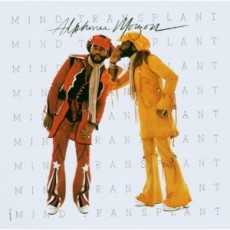
Daily Dose Of Jazz…
Alphonse Mouzon was born November 21, 1948 of African-American, French and Blackfoot descent in Charleston, South Carolina. He received his first musical training at Bonds-Wilson High School and moved to New York City upon graduation. He studied drama and music at the City College of New York as well as medicine at Manhattan Medical School.
Mouzon continued receiving drum lessons from Bobby Thomas, the drummer for jazz pianist Billy Taylor. He played percussion in the Broadway show “Promises, Promises” and then went to work with McCoy Tyner. He ventured into jazz-fusion spending a year as a member of Weather Report but gained greater visibility during his tenure with guitarist Larry Coryell’s Eleventh House fusion band from 1973 to 1975. His power, style and speed helped propel the band to notoriety, producing such albums as Introducing the Eleventh House, Level One, Mind Transplant and Back Together Again.
From the early 70s into the Eighties he would record a series of R&B dance style albums for Blue Note Records with Tommy Bolin, Herbie Hancock, Lee Ritenour, Seawind Horns and Freddie Hubbard supporting as sidemen on the sessions. Staying predominately in jazz-fusion he would go on to perform with Miles Davis on the soundtrack to “Dingo”, composing the song “The Blue Spot” for the jazz club scene, appeared in the film That Thing You Do, played the lead role as “Miles” in the film The High Life, played “Ray” in the movie The Dukes, as well as appearances in the movie First Daughter.
Outside of jazz-fusion Mouzon has played with Stevie Wonder, Eric Clapton, Jeff Beck, Carlos Santana, Patrick Moraz, Betty Davis, Chubby Checker, Robert Plant among others. He formed Tenacious Records in 1992 releasing his top 10 album The Survivor followed by several more that landed in the top twenty category. Drummer Alphonse Mouzon passed away on December 26, 2016 of Neuroendocrine Carcinoma, a rare form of cancer just two months after doctors discovered the severity of his illness. He was 68.
More Posts: drums




